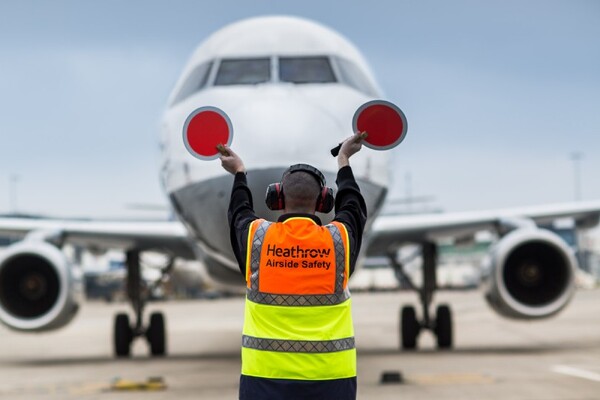'Travel mustn't let government set the agenda for reform'
 Luke Petherbridge
Luke PetherbridgeWith the pandemic now in the political rear-view mirror, and a general election on the horizon – the poll must be called by January 2025 at the latest – 2023 is set to be a busy period of political manoeuvring and regulatory change.
As judgement at the ballot box looms large, the UK government is keen to show it is on top of the issues that matter to the daily lives of the British public. This electoral focus will have direct ramifications for the regulatory landscape surrounding the UK travel industry.
Perhaps the most significant legislative development under way is the Retained EU Law Bill (REUL Bill), which commits to reviewing large swathes of EU-derived laws. Ministers will be tasked with decisions on whether to retain, revoke, or revise around 4,000 pieces of legislation, guided by a sunset clause that is currently set for the end of the year, although ministers can opt to extend this for individual laws until 2026.
To illustrate the size of the challenge, the Department for Transport – perhaps the most significant when it comes to travel-related legislation – has more than 400 pieces of legislation within its remit on the government’s dashboard. It remains to be seen whether calls for more time from business groups, including Abta, but also the British Chambers of Commerce and Federation of Small Businesses, will be heeded.
It looks likely a timing concession might be forced by the House of Lords, but either way, the bill is already shaping and will continue to determine the regulatory horizon for the UK travel industry.
’Political sands shifting’
Notably, the Department for Business and Trade has committed to revising the Package Travel Regulations, with a consultation due shortly on potential changes to the main framework legislation for consumer protection in our industry. While ministers have been committed to a review for some time, the need to demonstrate how post-Brexit freedoms are being used – the driving motivation of the REUL Bill – is a major factor in how the review is likely to be positioned.
For example, we know the previous secretary of state had been persuaded by loud calls from the domestic tourism industry to consider the removal of consumer protections from domestic packages to encourage the sale of ancillary services by hoteliers and other accommodation suppliers.
While the political sands have shifted and that secretary of state is no longer in post, this is likely to remain an important aspect of the upcoming review. Other areas to be looked at include changes to the financial protection options available under the PTRs, an examination of the definitions of a package and Linked Travel Arrangements, and a review of the extent of B2B rights within current legislation.
The other factor that will be espoused by ministers and officials as influencing their review of the PTRs, and other consumer protection legislation, is the need to reinforce consumer rights post-pandemic. We’ve already seen the Civil Aviation Authority cite this as one of their drivers for the ongoing reforms of the Atol scheme.
With industry submissions to the recent request for information currently being scrutinised by the CAA, we expect the second phase of the consultation process – which will include firm proposals on how travel businesses must protect consumer monies in future – by the autumn. While officials insist no decisions have been made, the CAA has intimated heavily – before, during and following the recent industry engagement exercise – that segregation of customer monies in some form will be part of their answer. If so, that will usher in fundamental changes to the way many businesses in our industry operate.
The post-pandemic review of consumer laws could see changes in other areas too, as the government is yet to respond to the Aviation Consumer Policy Framework consultation held in early 2022. The consultation contained questions around a host of measures related to consumer rights, including increased powers for the CAA, mandating alternative dispute resolution for UK airlines, changes to compensation for delays and cancellations, and amendments to accessibility rules.
Similar pressures apply in Europe, with the European Commission expected to publish proposals to revise the EU Package Travel Directive and Air Passengers Rights by the autumn. Elections to the European Parliament are due in May 2024, and the commission mandate will expire on 31 October 2024, so there is an extremely short timeframe for either proposal to be revised, agreed, and approved.
’Electoral lens’
However, all sides will be keen to secure agreements to demonstrate consumer wins. While future changes to the PTD will only now apply to UK companies that offer holidays for sale to consumers in the EU, any changes to key definitions or provisions will be followed with interest by UK officials, especially given the reviews will overlap. Meanwhile, APRs continue to apply directly to all flights departing the EU, so will have direct relevance for UK-based travel businesses, airlines, and travellers.
Against this backdrop, the important thing for the industry will be to continue to engage consistently in an evidence-based manner with politicians and officials. With reforms under way that will shape the future of consumer protection for years to come, and with politicians likely to be looking at decisions through an electoral lens, there is a risk of decisions being taken that have short-term electoral appeal, but which carry longer-term costs and risk for businesses.
We must all remain vigilant to avoid that outcome and to ensure whatever changes emerge enable travel businesses to build back from the pandemic and to trade successfully into the future.
Luke Petherbridge is Abta’s director of public affairs. This piece was written for issue 15 of Abta’s Travel Law Today magazine, which will be published at Abta’s upcoming 25th anniversary Travel Law Seminar over 10-11 May. Petherbridge will be among the speakers at the event. To find more information and register, visit abta.com/events.
Sign up for weekday travel news and analysis straight to your inbox

Luke Petherbridge
Supplier Directory
Find contacts for 260+ travel suppliers. Type name, company or destination.













